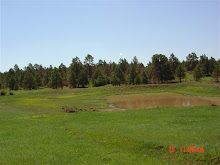Shell faces legal fight over Arctic wells
Nick Mathiason guardian.co.uk, Sunday 24 January 2010 17.08 GMT
Shell could extract billions of barrels of oils from the US part of the Chukchi Sea if its controversial plans go ahead.
Royal Dutch Shell's controversial plans to drill for billions of barrels of oil in the Arctic's environmentally sensitive frozen waters face a potentially damaging legal challenge.
An alliance of conservation and Alaskan indigenous groups has filed a legal claim to prevent Shell drilling for oil this year in the Arctic Ocean's Chukchi Sea. Two years ago, Shell paid $2.1bn (£1.3bn) to the US government for 275 oil leases there.
The legal claim accuses the US's minerals management service, part of the federal interior department, of waving through permission to allow Shell to drill wells on the basis of an "abbreviated and internal review" of the environmental dangers of exploration.
The US portion of the Chukchi Sea, which separates north-western Alaska from north-eastern Siberia, is believed to hold 15bn barrels of recoverable oil and 76tn cubic feet of recoverable natural gas, according to the interior department.
It is also home to endangered bowhead whales, threatened polar bears and rich and varied fish stock. There are further concerns that more drilling in the region will increase warming in the Arctic, which is heating up twice as fast as the rest of the world.
"Shell's drilling brings with it the risk of large oil spills," said Pamela Miller, Alaska programme director for the Northern Alaska Environmental Center. "Chronic spills are a fact of life from oil and gas operations on Alaska's North Slope, where over 6,000 spills have occurred since 1996, and more than 400 of these took place at offshore oil fields. In the icy conditions of the Arctic Ocean, there is no way to effectively clean up spilled oil."
Shell also needs air emission, oil discharge and marine mammal harassment permits before it can extract oil. Last year, the Anglo-Dutch oil group was forced to scale down oil drilling in the Beaufort Sea off Alaska amid concerns that oil spillages would cause devastation to marine life.
A Shell spokesman said: "The Chukchi Sea alone could be home to some of the most prolific undiscovered hydrocarbon basins in the US, and we believe those oil and natural gas reserves could play a major role in reducing our dependence on foreign sources of energy. Extensive scientific studies and technological advances demonstrate that we can operate in the Arctic in an environmentally responsible manner; it seems there are groups who are opposed to Arctic exploration, even though it can be done responsibly."
Shell is one of the few companies to have been given permission to drill for Arctic oil. The region may be home to 30% of the planet's undiscovered natural gas reserves and 13% of its undiscovered oil, according to recent findings by the US Geological Survey.
But the issue has become increasingly fraught for environmentalists and, in a further embarrassment to Shell, one of the world's leading marine conservation scientists has resigned from the University of Alaska, claiming he lost state funding partly because of his criticism of Shell's Alaskan activities.
Professor Rick Steiner, who is one of the most respected and outspoken academics on the oil industry's environmental record, claims that the oil industry pays $300m to the University of Alaska – a sum which, he says, compromises its academic integrity. Steiner alleges the university was told by a state environmental funding agency that his stance on oil exploration was "a problem" which led to his grant being withdrawn.
More>>>






0 comments:
Post a Comment